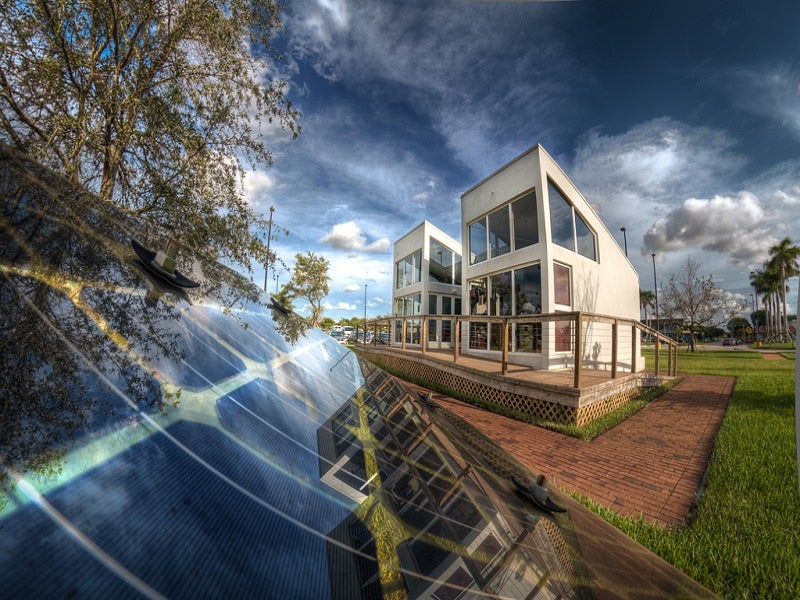Groups File Suit Against JEA, Jacksonville’s Electric Utility
JEA’s new policy penalizes rooftop solar customers
Contact
Earthjustice filed a legal challenge today against JEA, Florida’s largest municipal electric utility, because it is violating state law by short-changing customers who want to use rooftop solar energy.
Earthjustice filed suit in state Circuit Court on behalf of the League of Women Voters of Florida and Solar United Neighbors. Solar United Neighbors had to abandon plans for a solar co-op in JEA’s territory because the utility’s new policy makes the project financially unfeasible.
Under a policy that went into effect on April 1, JEA claims to be implementing “net metering” — but is actually not doing so. Net metering is the system utilities like JEA use to compensate solar owners for the excess electricity they produce — and is required by state law. Solar customers are supposed to be able to offset their energy consumption from the grid by lowering their bill by the exact amount of energy they produce. For example, if solar homeowners use 850 kilowatt-hours (kWh) of electricity in a month — and they produce 400 kWh of electricity from their solar panels, their total electric bill (the net) should be for 450 kWh of electricity. JEA no longer wants to do that.
“Under its new policy, JEA will purchase excess energy from a solar customer for 3.25 cents per kilowatt hour and then turn around and sell it to other, non-solar customers right next door for 10.3 cents, all calculated on an instantaneous basis,” said Earthjustice attorney Bonnie Malloy.
“Besides being an unfair and bad deal for solar producers, JEA’s policy will devastate the rooftop solar market. That’s not what the law intends.”
JEA’s flawed policy significantly reduces the value of rooftop solar and roughly doubles the amount of time a solar customer can recoup the cost of their investment — from 10 years to 20 years.
“Jacksonville homeowners want to go solar,” said Angela DeMonbreun, a Jacksonville resident who is Florida Program Director for Solar United Neighbors. “But without fair compensation for the electricity we generate, few of us can do so.”
While interest in and adoption of rooftop solar is rapidly growing in the state, Florida remains behind other states. True “net metering,” with fair compensation, is one of the few pro-solar policies in effect in Florida and is essential for rooftop solar to expand.
“Communities across Florida are embracing solar because it is an economically feasible way to use a clean energy source,” DeMonbreun said. “Jacksonville is the largest metropolitan area in the state and this new solar policy is truly backwards — it prevents residents from using solar energy to take control of where their electricity comes from.”
League of Women Voters of Florida President Pam Goodman said: “Our volunteers have helped launch 28 solar cooperatives around the state, and it is unfair for our Jacksonville citizens that the recent changes in net metering policy by JEA puts solar out of reach for them.”

Additional Resources
About Earthjustice
Earthjustice is the premier nonprofit environmental law organization. We wield the power of law and the strength of partnership to protect people's health, to preserve magnificent places and wildlife, to advance clean energy, and to combat climate change. We are here because the earth needs a good lawyer.